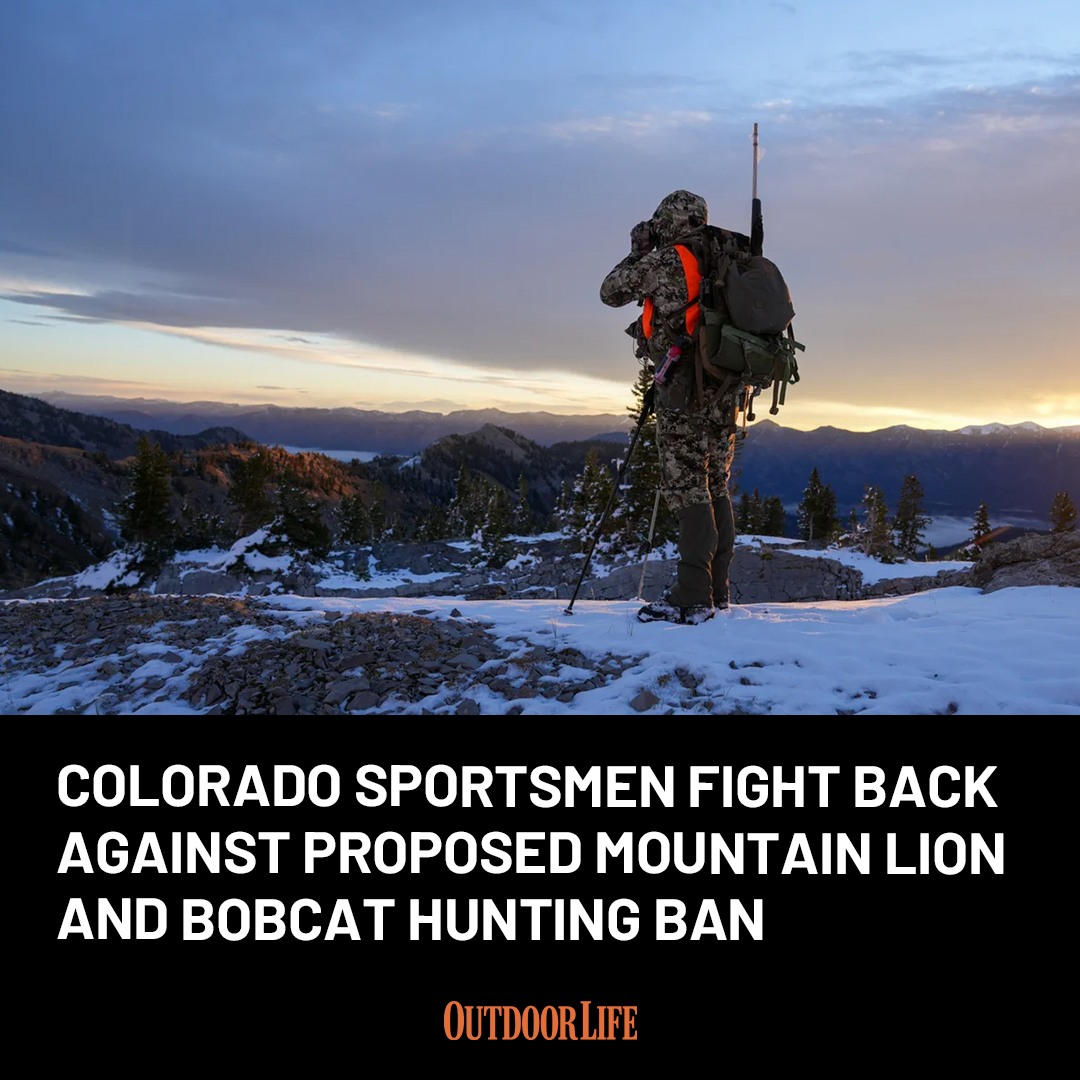A group of Colorado hunters, anglers, trappers, ranchers, and wildlife advocates isn’t sitting still as they face down a looming ballot initiative that could end hunting in the Centennial State.
Instead, Coloradans For Responsible Wildlife Management (CRWM) is rolling out a sophisticated media campaign that makes the case that regulated hunting benefits all species. And they’re taking that message to the airwaves and social media channels in the hopes that they reach voters who may have never purchased a hunting or fishing license but who recognize that mainstream wildlife management is sustainable, equitable, and effective.
What’s at stake in the ballot initiative, which would ban all mountain lion, bobcat, and lynx hunting and trapping in Colorado, is a wider definition of hunting. The initiative language calls for a ban on all “trophy hunting.”
“Make no mistake,” states the narrator in CRWM’s first video, released this week. “This is the foundation of a wider goal with national implications. Though this attempt targets the harvest of big cats, it specifically prohibits trophy hunting.”
The initiative’s language specifically would end hunting, trapping, and pursuit of mountain lions and bobcats (the inclusion of lynx in the initiative is a red herring, say opponents; lynx have been protected from all pursuit and harvest since they were restored to Colorado years ago). But by using the term “trophy hunting” as the basis for the ban, initiative backers hope to end all hunting, say members of CRWM.
Although Colorado Initiative 2023-2024 #91 won’t be voted on for a full year—if supporters collect enough signatures, it would appear on next November’s general-election ballot—opponents are starting their push-back now. That’s because Colorado’s ballot initiatives are notoriously fickle. In the 2020 general election, Colorado voters narrowly approved Proposition 114, which requires the state’s Parks and Wildlife Commission to create a plan to reintroduce gray wolves in Colorado.
Colorado’s pro-hunting message is being released as Oregon voters start to consider a ballot initiative that would end all hunting in the Beaver State. If Initiative Petition #3 wins enough signatures, it would appear on next November’s general election ballot, and if passed would criminalize “injuring or killing animals, including killing for food, hunting, fishing; criminalizes breeding practices.”
You can expect the rhetoric to rise in both states as the twin initiatives work their way through the electoral process. Among those scrutinizing voters’ choices are academics. While Colorado’s Prop 114 was opposed by most wildlife biologists and even CPW itself, voters approved it by a few thousand votes in the statewide question. In a post-election study of the vote, Colorado State University researchers determined that “public perception about wolf reintroduction had changed. This change may have been the result of outreach campaigns by groups opposed to wolf reintroduction.”
The videos released this week by CRWM is the start of a year-long outreach campaign that assures Colorado’s voters that hunting is normal, humane, and widely beneficial to wildlife species that will never be hunted.
“The proponents of this initiative are wielding misinformation as their weapon,” says CRWM on its website. “They’ve coined the term ‘Trophy Hunting’ to mislead the public and potential voters, veiling their true intentions behind a facade of concern over fair chase, cruelty, and mismanagement.”
In a related post, the Congressional Sportsmen’s Foundation finds problems with the broader notion of using the citizen initiative process to manage wildlife.
“The use of ballot initiatives to restrict or ban hunting circumvents the legislative and regulatory process that allows for input by professionals, opportunities for revisions, and considerations of broader impacts within the state’s overall science-based management plan,” notes the CSF. “These initiatives can allow wildlife management decisions to be made based on emotion rather than scientific principles and can tie the hands of professional wildlife managers by restricting adaptive tools and methods necessary to achieve balanced and thriving ecosystems.”
